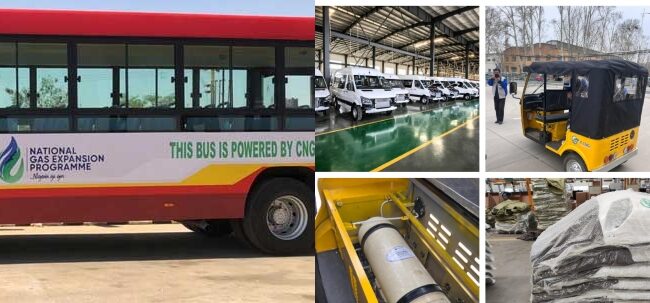The federal government has set up conversion centers across Nigeria to receive Compressed Natural Gas (CNG) kits as part of efforts to address increasing transportation costs and reduce carbon emissions.
The Presidential Compressed Natural Gas Initiative is overseeing this effort, which aims to provide a more affordable and environmentally friendly fuel alternative for commercial vehicles.
According to Michael Oluwagbemi, Programme Director of the Presidential CNG Initiative, at least 18 conversion centers nationwide have received 50 CNG kits each.
During an inspection of some centres in Abuja on Saturday, Oluwagbemi announced the launch of the CNG kit distribution, enabling commercial drivers to participate in the conversion incentive programme announced by the President.
In August, the President pledged to provide one million free conversion kits for the commercial sector to help moderate transportation fares across the country.
According to him, the initiative has already benefited seven centres in Abuja, with plans for wider distribution.
“We’ve signed up over 75 conversion partners across eight states: Lagos, Ogun, Oyo, Delta, Kogi, Nasarawa, FCT, and Kaduna. Later this month, we’ll add nine more states, including Kwara, Akwa Ibom, and others,” Oluwagbemi revealed.
The free conversion kits, available to commercial vehicle owners, are part of the government’s strategy to ease transportation costs.
Oluwagbemi explained that drivers only need to present their commercial vehicle documents or identification for verification.
He further stated that the initiative aims to convert one million vehicles to CNG, a move expected to save N750 million — equivalent to a single month’s fuel subsidy payment — and create 100,000 direct jobs.
A commercial taxi driver, John Ojonugwa, at the Abg CNG centre in Abuja, expressed optimism while waiting in line for his vehicle’s conversion.
Speaking at Abg CNG Dawaki, Abuja, one of the technicians, Mas’ud Ya’u, said, “It takes one day to convert a vehicle to CNG. Due to the division of labour, we used to convert about four cars a day.
“I heard this initiative is free of charge, and I am hopeful it will get to my turn to have my vehicle converted,” he said, after waiting since 6 a.m.
Oluwagbemi emphasised the economic and environmental benefits of the initiative.
NIGERIAN TRIBUNE
